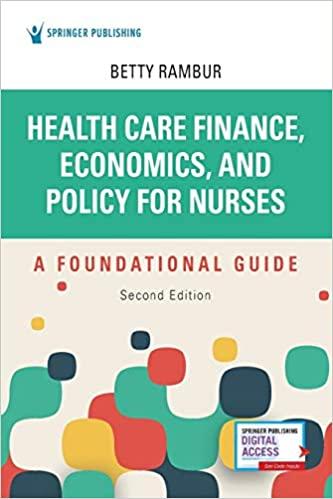Question
1. Electronics and More offers credit terms of 2/7, net 30. What is the effective annual rate on a $4,500 purchase if you forgo the
1. Electronics and More offers credit terms of 2/7, net 30. What is the effective annual rate on a $4,500 purchase if you forgo the discount?
a - 41.83 percent
b - 38.59 percent
c - 44.99 percent
d - 37.80 percent
e - 32.58 percent
2. Show Place Decor has estimated quarterly sales for next year, starting with Quarter 1, of $38,600, $53,400, $48,900, and $69,800. Purchases are equal to 62 percent of the following quarter's sales and the accounts payable period is 30 days. Assume each month has 30 days. What is the estimated accounts payable balance at the end of Quarter 2?
a - $10,106
b - $9,520
c - $11,624
d - $14,425
e - $14,200
3. Southern Fried Chickn has estimated quarterly sales for next year, starting with Quarter 1, of $38,200, $41,300, $79,700, and $32,900.The accounts receivable period is 11 days. What is the expected accounts receivable balance at the end of the second quarter? Assume each month has 30 days.
a - $4,668.89
b - $10,603.10
c - $5,047.78
d - $15,143.33
e - $14,006.67
4. Which statement is correct?
a - Exchange rates are adjusted each morning and held constant until the following morning.
b - The four most commonly traded currencies in the foreign exchange markets are the U.S. dollar, French franc, European euro, and Brazilian real.
c - All South American countries use the peso as their currency.
d - New Zealand uses the same currency as Australia and that is the A$.
e - The foreign exchange market is the largest financial market in the world.
5. Which of the following tend to rise when a firm switches to a flexible financial policy from a restrictive financial policy?
I. Restocking costs
II. Price reductions to offset limited selection
III. Storage costs
IV. Current asset opportunity costs
a - I and II only
b - III and IV only
c - I, III, and IV only
d - I, II, and III only
e - II, III, and IV only
6. Which statement is true?
a - A decrease in the accounts receivable turnover rate decreases the cash cycle.
b - Paying a supplier within the discount period rather than waiting until the end of the normal credit period will decrease the cash cycle.
c - The number of days in the cash cycle can be positive, negative, or equal to zero.
d - An increase in the inventory turnover rate must increase the cash cycle.
e - The payables period must be shorter than the receivables period.
7. The Lumber Yard has projected sales for April through July of $152,400, $161,800, $189,700, and $196,400, respectively. The firm collects 52 percent of its sales in the month of sale, 46 percent in the month following the month of sale, and the remainder in the second month following the month of sale. What is the amount of the July collections?
a - $189,819
b - $181,508
c - $122,852
d - $175,500
e - $192,626
8.Big Reds purchases from suppliers in a quarter are equal to 71 percent of the next quarter's forecast sales. The payables period is 60 days; other expenses are paid when incurred Wages, taxes, and other expenses are 24 percent of sales, and interest and dividends are $40 per quarter. No capital expenditures are planned. Projected quarterly sales, starting with Q1, are $1,520, $1,580, $1,630, and $1,590, respectively. Sales for the first quarter of the following year are projected at $1,540. What is the amount of the total disbursements for Q2?
a - $1,564
b - $1,520
c - $1,601
d - $1,538
e - $1,553
9. Which report identifies the percentage of accounts receivable that are delinquent by 90 days or more?
a - Cash budget
b - 5 Cs of credit
c - Credit analysis
d - Aging schedule
e - Credit scoring report
Step by Step Solution
There are 3 Steps involved in it
Step: 1

Get Instant Access to Expert-Tailored Solutions
See step-by-step solutions with expert insights and AI powered tools for academic success
Step: 2

Step: 3

Ace Your Homework with AI
Get the answers you need in no time with our AI-driven, step-by-step assistance
Get Started


